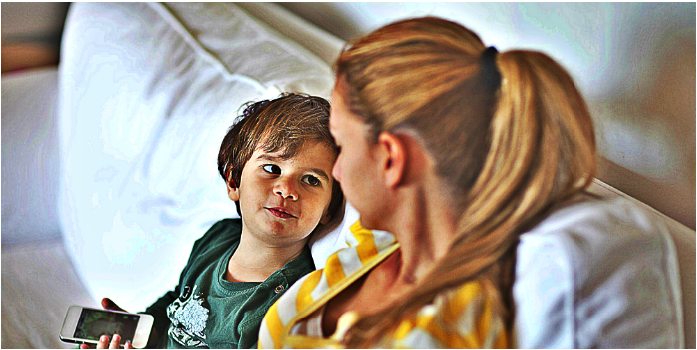Parents are the cornerstones of support for children. They are even more crucial during the critical years of their children’s development. Parents instill a sense of safety and affection in their children. They look to their parents for guidance and support.
More often than we think, our words have a greater influence on our children. Youngsters often take things at face value and regard their parents’ words as the “Word of God.”
Regardless of your level of anger, refrain from saying or doing the following in front of your child:

1. “Stop crying”
Never should you prevent your youngster from expressing their feelings. You shouldn’t make them appear foolish for sobbing if they are unable to stop. Saying this to your child essentially tells them to suppress their feelings.
Allowing children to cry until they are satisfied while also helping them to understand whether and what they did wrong is a healthier strategy.

2. “You disappointed me!”
Make sure your child doesn’t feel like a letdown. They will live with this for a very long time since kids detest disappointing their parents. It is your responsibility to inform them if they did anything improper. Just make sure you do it gently and without hurting them.

3. “You are not good/studious/obedient etc. enough”
Never let your youngster know that they are lacking anything, internal or external. When a youngster begins to feel that he or she is not what their parents want or that they are not like other kids, it is extremely upsetting. He may carry this belief into adulthood, which could have a negative impact on him.
You can let your child know that they can always get better. Their confidence can be developed and will last a lifetime.
4. “Big boys/girls don’t get scared”
Telling them not to get scared won’t make them stop being afraid. Fear cannot be subdued by such empty words. So you should reassure them that it’s OK to feel afraid occasionally.

5. “You are a bad boy/girl”
Never should you give your youngster the impression that they are all wrong. You ought to inform them of their errors and the negative things they committed. Errors happen to everyone, even grownups!
6. “I do everything for you”
Well, kids look on you to take care of everything while they are little.You ought to be able to support them as you are in charge of them. It is you who is protecting and guiding them, not the other way around. You may help them develop a sense of accountability, but don’t count on them to take over as your right hand very quickly.

7. “You’re fat/dark/ugly etc.”
Your children are essentially a reflection of yourself, no matter how they may appear.
If they have more moles than other kids or are darker than other kids, it’s not their fault. If your child is overweight, they most likely already know it because they are likely the target of bullying or name-calling at school or on the playground.
You don’t want to create an environment where they feel insecure because home is their safe haven. It is not appropriate for parents to instill body-shaming ideas in their young children.
You can motivate them to work out and consume a nutritious diet. It’s important to promote good physical habits.

When speaking with their children, parents ought to use discretion. It’s not only that they should keep an eye out for those who don’t swear in front of them. Youngsters look to their parents for approval and affection. If they don’t understand that as kids become older, they will grow up to be damaged adults. Encourage them to succeed by raising their sense of self-worth.

